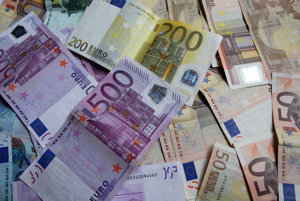There are not many economic reasons to increase taxes as both the revenue and the expenditures of the state have been increasing at the fastest rate in the European Union since 2007. Nevertheless, the government plans to introduce new taxes, according to the latest report of the economic think tank Institute for Economic and Social Studies (INESS).
All EU member states, except for Greece, are spending more public resources than before the crisis – about 20 percent on average. Slovakia is an absolute leader as its expenditures have increased by 75 percent since 2007. The spending, however, was impacted last year by using the money from EU funds allocated for the 2007-2013 programming period. By 2014 the expenditures rose by 56 percent, the TASR newswire reported.
Slovakia is currently fifth, with a 16-percent share of the public sector in economy. The public administration’s expenditures comprise 45 percent of Slovakia’s annual gross domestic product, said INESS analyst Martin Vlachynský.
 Government changes tax policy Read more
Government changes tax policy Read more The EU member states have not only been increasing expenditures, but also revenue. Slovakia tops the chart also in this indicator as the income to its budget increased by 54 percent between 2007 and 2014. The share of the EU funds on total incomes of the public administration is however small, only less than 10 percent. Last year it was slightly higher, amounting to 12 percent, TASR wrote.
While the state collected some €15.6 billion in taxes and payroll levies in 2007, this year it may amount to about €22.3 billion. Their collection in Slovakia has increased by 43 percent. The social payroll taxes have increased the most, by 60 percent, mostly due to the changes to the second pension pillar, Vlachynský said. Moreover, the collection of taxes from individuals and legal entities has increased by more than a half, while the rise in consumer taxes was zero.
Slovakia’s tax burden has increased by 6.9 percent between the years 2007-2014, which is the third highest growth after Greece and France, said Vlachynský, as reported by TASR.
The new tax package of Finance Minister Peter Kažimír (Smer) should bring some €150 million to the state coffers in 2017. It includes a tax on dividends, higher taxes on cigarettes and gambling, as well as higher taxes on regulated companies and a new levy on non-life insurance. The tax revenue this year should be €800 million lower than original estimates, TASR wrote.






